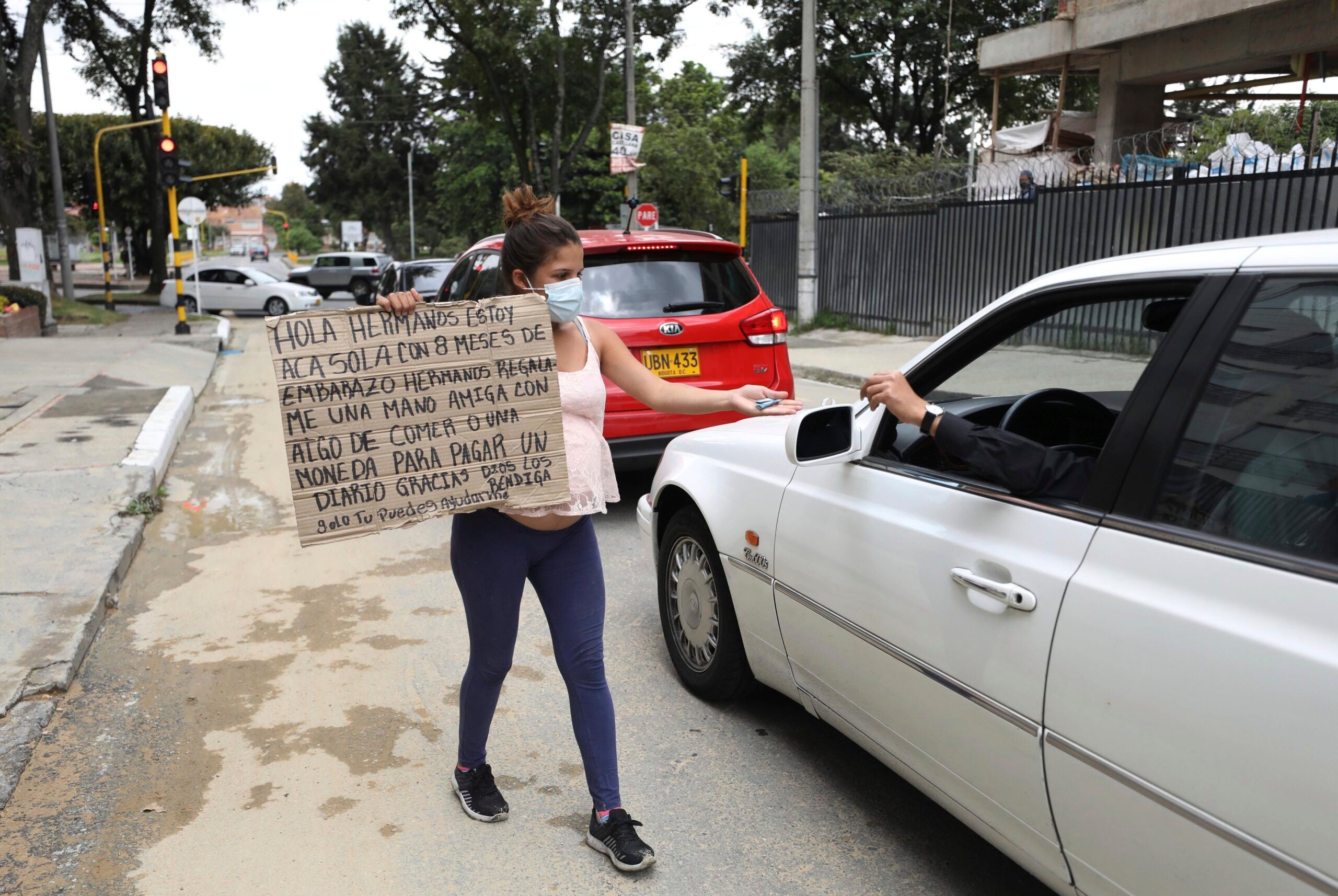A Marquette University professor is in Colombia on a Fulbright scholarship studying pregnant migrant mothers and how the trauma they bring from instability and violence in Venezuela affects their mental health.
Lisa Edwards is specifically studying the perinatal period — which spans before and after childbirth — because “the effects of stress on moms are really profound,” she said.
Although some information she shares can be relevant to pregnant people from different gender identities, she explained her research focuses on pregnant women.
News with a little more humanity
WPR’s “Wisconsin Today” newsletter keeps you connected to the state you love without feeling overwhelmed. No paywall. No agenda. No corporate filter.
There are effects for the children, too.
Some of the short-term outcomes seen in research before birth, she said, include low birth weights, pre-term labor or other complications during pregnancy. After the baby is born, some effects include decreased attachment to the mother, a lack of pro-social behavior and other cognitive, behavioral or emotional concerns.

“We have a growing body of evidence, and we’re learning more every day, about the importance of mental health of mothers when they’re pregnant and postpartum,” she said on WPR’s “The Morning Show.”
Edwards’ other work on this topic goes back to her initiative in Milwaukee called Proyecto Mamá, which assesses the mental health needs and available resources in the city for Latina mothers and families.
When asked about what she was expecting to see in Colombia that might overlap with what she saw in Milwaukee, Edwards mentioned the broader stigma around new mothers discussing their anxiety or depression.
To be clear, there are significant barriers to finding treatment for those mental health needs, such as the costs of insurance, counseling and child care. But she said the stigma is “something that we face globally.”
“The narrative is that as a mother, you’re supposed to be so joyful and so happy,” she said. “How on Earth could you be having concerns or anxiety or feeling down? Or even worse, having scary thoughts about your baby and fears that you might harm it?”
She said she found this “taboo” feeling in her research with mothers of Mexican and Central American descent. Particularly, she said mothers who are living in the United States without legal permission could worry about detainment, deportation or losing custody of their children if they seek care for how they’re feeling.
She expects the stigma to ring true for the Venezuelan mothers in her most current research venture. She emphasized the importance of intersectionality in considering the needs of the people she’s studying.
“People are not just women. They’re not just Venezuelans. They’re not just migrants,” she said. “It’s all together at once.”
Edwards was awarded her Fulbright award in 2021, but COVID-19 delayed when she could go to the country her mother is from until this year, according to a March article posted on Marquette’s website. She is working with counterparts from Universidad CES in Medellín to gather qualitative data on the migrant mothers.
She said those mothers are fleeing financial instability, crime and “what many are calling a humanitarian crisis in Venezuela.” The mothers often lack access to medical care, too, especially prenatal care. The arriving mothers maybe haven’t been able to hear their own baby’s heartbeat.
In Colombia, she said they can begin to get their basic needs met, such as better nutrition. But her goal is to address their mental health needs, which she said are “the piece that’s often ignored when we talk about the development of the baby.”
“We’re always thinking, ‘Is baby healthy? Is mom OK?’” she said. “But we’re not talking about the emotional and psychological part of this.”
While the goal is to help these mothers with all they have to keep on their shoulders, Edwards still acknowledged the resiliency of mothers fleeing violence in hopes of a better life for their babies.
“It’s truly inspiring,” she said. “If we as a world supported moms — immigrant moms, all moms — we truly could be impacting their mental health for generations to come.”
Edwards will be in Colombia through late June.
Wisconsin Public Radio, © Copyright 2026, Board of Regents of the University of Wisconsin System and Wisconsin Educational Communications Board.






